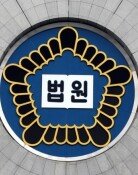Missile Test Sparks Diplomatic Frenzy
The international community is stepping up its diplomatic efforts to discuss a restart of the six-party talks, as well as measures to put pressure on North Korea in order to address the missile launch and nuclear development of the country. The United States, Japan, China, Russia and Indonesia are all making speedy moves to this end.
China to Sway North Korea-
Vice Foreign Minister Wu Dawei, China chief negotiator for the six-party talks, plans to visit North Korea between July 10 and 15 to meet with his counterpart in the talks, Vice Foreign Minister Kim Kye Gwan of North Korea.
Wu will be persuading Kim to participate in the unofficial round of six-party talks scheduled to be held in Shenyang, China in mid-July. To further weigh down on him, Wu is also expected to bring up the possibility of five-party talks excluding North Korea.
Meanwhile Beijing is also studying measures to lower the extent of the resolution on sanctions against North Korea currently being debated at the U.N. Security Council, or to vote it down altogether, to be used as a bait to bring around North Korea.
Along the same line were the phone calls Chinese Foreign Minister Li Zhaoxing made on July 9 to his counterparts in Korea, Minister Ban Ki-moon, and in the 11 member nations of the U.N. Security Council.
Minister Li has reportedly asked Minister Ban to persuade the U.S. and Japan to make a decision in the Security Council that will not enrage North Korea, for although a veto from China, a standing member of the Council, would automatically kill a resolution, it would also place a great burden on the country to do so.
Lee Kyu-hyung, Koreas Vice Minister of Foreign Affairs, invited the Japanese Ambassador Shotaro Oshima to the Foreign Ministry building on July 10 to discuss the issue.
North Korea to Attend ARF?-
North Korean Foreign Minister Back Nam Soon may participate in the 13th Ministerial Meeting of the ASEAN Regional Forum, to be held in Kuala Lumpur of Malaysia between July 26 and 28. Particular attention is focused on whether U.S. Secretary of State Condoleeza Rice and Minister Back will have a chance to narrow the gap between their stances on the financial sanctions on North Korea and resumption of the six-party talks.
As Minister Ban is also scheduled to attend the conference, the Foreign Ministers of the two Koreas may engage in a direct discussion on the North Korean missiles and six-party talks if they are able to hold a meeting.
However, whether a U.S.-North Korea dialogue could take place is unclear at the moment, as Japan apparently will be including censure against North Korea in its Chairmans Statement at the Ministerial Meeting. Japanese Foreign Minister Taro Aso is also said to be planning to meet with the North Korean Foreign Minister to express Japans concerns over the missiles launching incident.
Will Kim Jong Ils Voice Be Heard?-
President Susilo Bambang Yudhoyono of Indonesia will be visiting North Korea on July 17-19 and then coming south of the border to join South Korean President Roh Moo-hyun for summit talks on July 19-22. President Yudhoyono is highly likely to meet with the North Korean leader, Kim Jong Il, and therefore may deliver a written or a voice message from Kim to President Roh or the international community.
The Indonesian president has already acted as a mediator in the past to ease the conflict between North Korea and the rest of the world at the previous nuclear crises. As Kim has been maintaining a low profile since the July 5 missiles launch, it is hoped that President Yudhoyono meeting with him to hear his explanation for the incident will help the international community in forming measures to address the problem.
Myoung-Gun Lee gun43@donga.com orionha@donga.com







